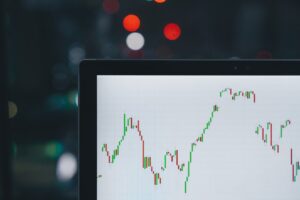## Outlook 2025: Navigating the Economic Landscape
The global economy is in constant flux, and 2025 promises to be another year of significant shifts. For young people entering the workforce or managing their early finances, understanding the key trends and potential risks is crucial for making informed decisions. This outlook explores some of the dominant forces shaping the economic landscape in the coming year.
Several key trends are expected to dominate in 2025. The continued rise of artificial intelligence (AI) will reshape industries, creating both opportunities and challenges. While AI is poised to drive productivity and innovation, it also poses risks to traditional job markets. Adaptability and upskilling in areas like data analysis and software development will be increasingly important. Sustainable investing will continue its upward trajectory, with investors increasingly prioritizing companies committed to environmental, social, and governance (ESG) principles. This shift reflects a growing awareness of climate change and its economic implications, presenting opportunities for green businesses and sustainable technologies. Furthermore, the global chip shortage, while potentially easing, will likely continue to impact various sectors, from consumer electronics to automotive. Understanding supply chain vulnerabilities and the geopolitical factors influencing them will be essential for navigating the economic uncertainties ahead.
However, these promising trends are accompanied by certain risk parameters that require careful consideration. Inflation remains a persistent concern. While central banks are striving to control it, unpredictable global events could exacerbate inflationary pressures, impacting purchasing power and investment returns. Geopolitical instability, including rising international tensions and potential conflicts, adds another layer of complexity to the economic outlook. Trade disruptions, energy price volatility, and cybersecurity threats could all stem from these instabilities, creating a challenging environment for businesses and individuals. Finally, the increasing frequency and severity of extreme weather events linked to climate change pose a significant economic risk. From disruptions to supply chains to damage to infrastructure, the costs associated with climate-related disasters are expected to rise, highlighting the importance of climate resilience and adaptation strategies.
Navigating the economic landscape of 2025 will require a proactive and informed approach. Young people, in particular, should focus on developing adaptable skill sets, diversifying their investments, and staying informed about global economic trends and risks. By understanding the forces at play, they can position themselves for success in a dynamic and evolving world.





